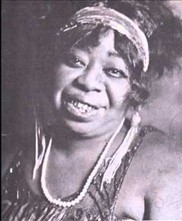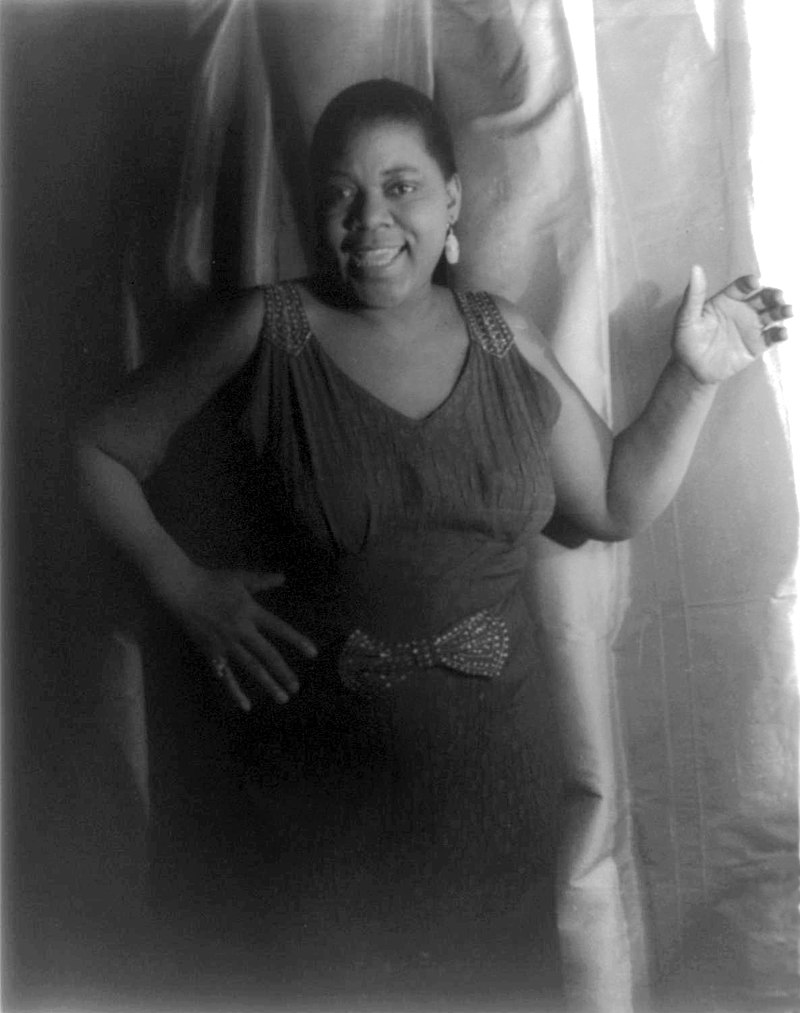
Classic Blues 2
Another female vocalist, Clara Smith, was dubbed the "Queen of the Moaners" in recognition of her sustained songs and their representation of the subtle moods of the segregated audiences. Although unrelated, her reputation was based mainly on having been the only woman to share a recording with Bessie Smith.
Perhaps the most famous of the Classic Blues singers was Bessie Smith from Chattanooga, Tennessee, whose majestic and powerful delivery was recalled with awe by all who heard her. Termed the "Empress of the Blues," she epitomized the idiom for many enthusiasts. Smith was taught and encouraged by Ma Rainey.

Ma Rainey

Bessie Smith
Classic Blues is applied principally to women singers of the 1920s and not to male artists or instrumentalists. Customarily, the women were accompanied by small bands of jazz musicians or by instrumental duos and solo pianists, who notably played jazz rather than blues and may generally have been selected by the recording companies. The form of blues vocals that these women blues singers adopted was considered vocal effects, often with rich intonation. Some singers composed songs for presentation on stage, but most drew on published materials for much of their work. The quality of their vocals was varied, but many sang with strength and conviction while employing the shading and flattening of certain sounds that typified the blues of the period-they were addressing audiences who may have shared their experiences or their values.
Bo-Weavil Blues
Hey, bo-weavil, don't sing the blues no more
Hey, hey, bo-weavil, don't sing the blues no more
Bo-weavil's here, bo-weavil's everywhere you go
The St. Louis Blues
I got them Saint Louis Blues
just as blue as I can be
He's got a heart like a rock cast in the sea
Or else he wouldn't have gone so far from me





